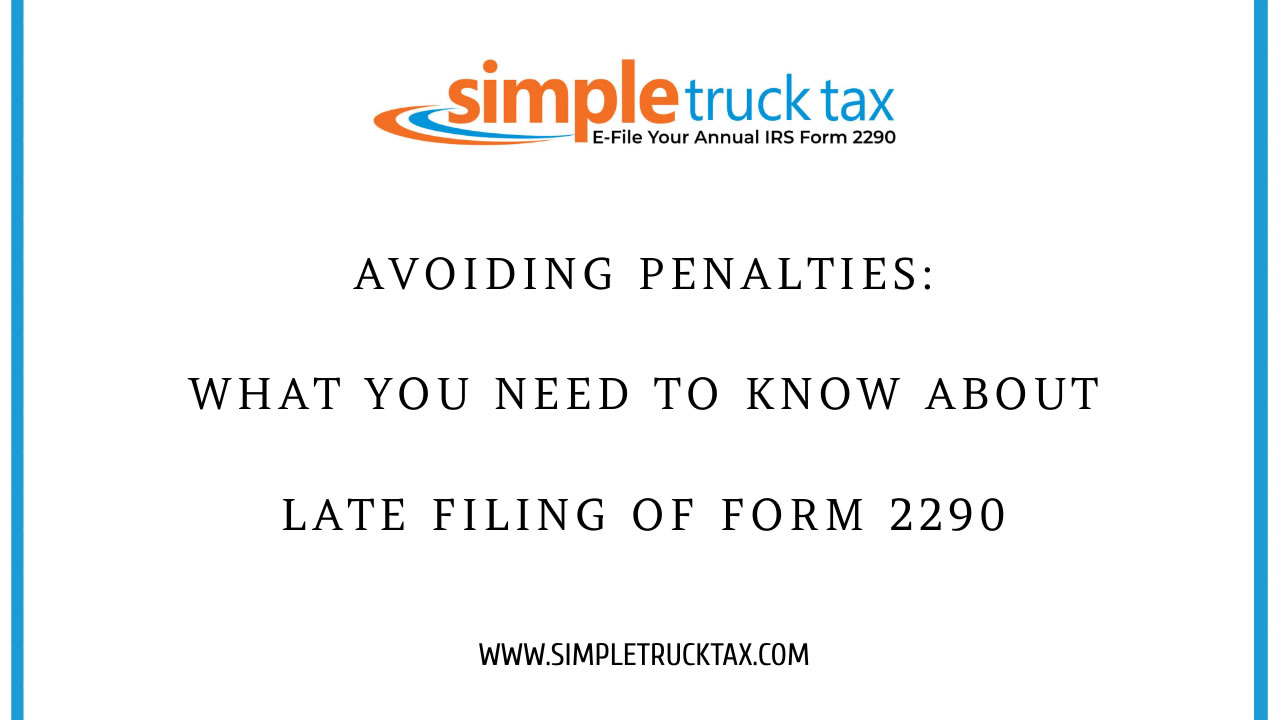
Avoiding Penalties: What You Need to Know About Late Filing of Form 2290
If you are a truck owner or operator, you are likely familiar with Form 2290, also known as the Heavy Highway Vehicle Use Tax Return. This form is required by the IRS for anyone who owns or operates a heavy highway motor vehicle with a gross weight of 55,000 pounds or more. Filing Form 2290 is an essential part of staying compliant with IRS regulations, and failing to do so can result in costly penalties. We will discuss what you need to know about late filing of Form 2290 and how to avoid penalties.
What is Form 2290?
Form 2290 is used to report and pay the federal excise tax on heavy highway vehicles. The tax is based on the weight of the vehicle and the number of miles it is expected to travel during the tax period. The tax is typically due annually, with the deadline for filing and payment falling on August 31st each year. Failure to file Form 2290 by the deadline can result in penalties and interest charges.
Penalties for Late Filing
If you fail to file Form 2290 by the August 31st deadline, you may be subject to penalties imposed by the IRS. The penalty for late filing is generally 4.5% of the total tax due, with an additional penalty of 0.5% of the tax due imposed for each month the return is late. These penalties can quickly add up and result in significant costs for truck owners and operators.
How to Avoid Penalties
To avoid penalties for late filing of Form 2290, it is essential to make sure you file the form by the August 31st deadline each year. Here are some tips to help you avoid penalties:
- Mark the deadline on your calendar and set a reminder to ensure you do not forget to file Form 2290 on time.
- Keep accurate records of your vehicle’s weight and mileage to make the filing process easier and more accurate.
- Consider filing electronically using the IRS e-file system, which can help you avoid errors and ensure your form is filed on time.
- If you are unable to file by the deadline, consider filing for an extension using IRS Form 4868. This can give you an additional six months to file your Form 2290 and avoid penalties.
By following these tips and staying organized, you can avoid costly penalties for late filing of Form 2290. Remember that compliance with IRS regulations is essential for truck owners and operators, and filing Form 2290 on time is a crucial part of meeting these requirements. If you have any questions or need assistance with filing Form 2290, consider seeking help from a tax professional or accountant who is familiar with IRS regulations regarding heavy highway vehicles.
Note: For more information, visit IRS website